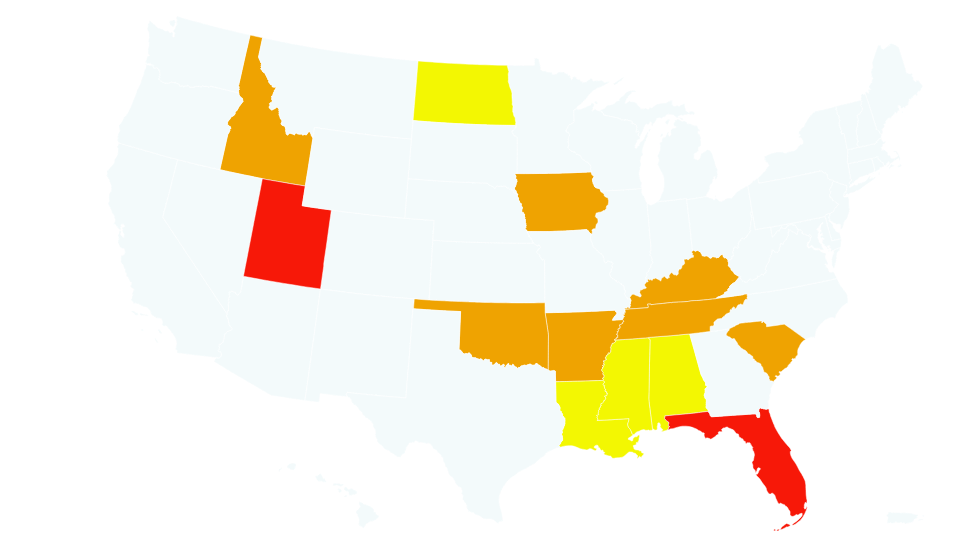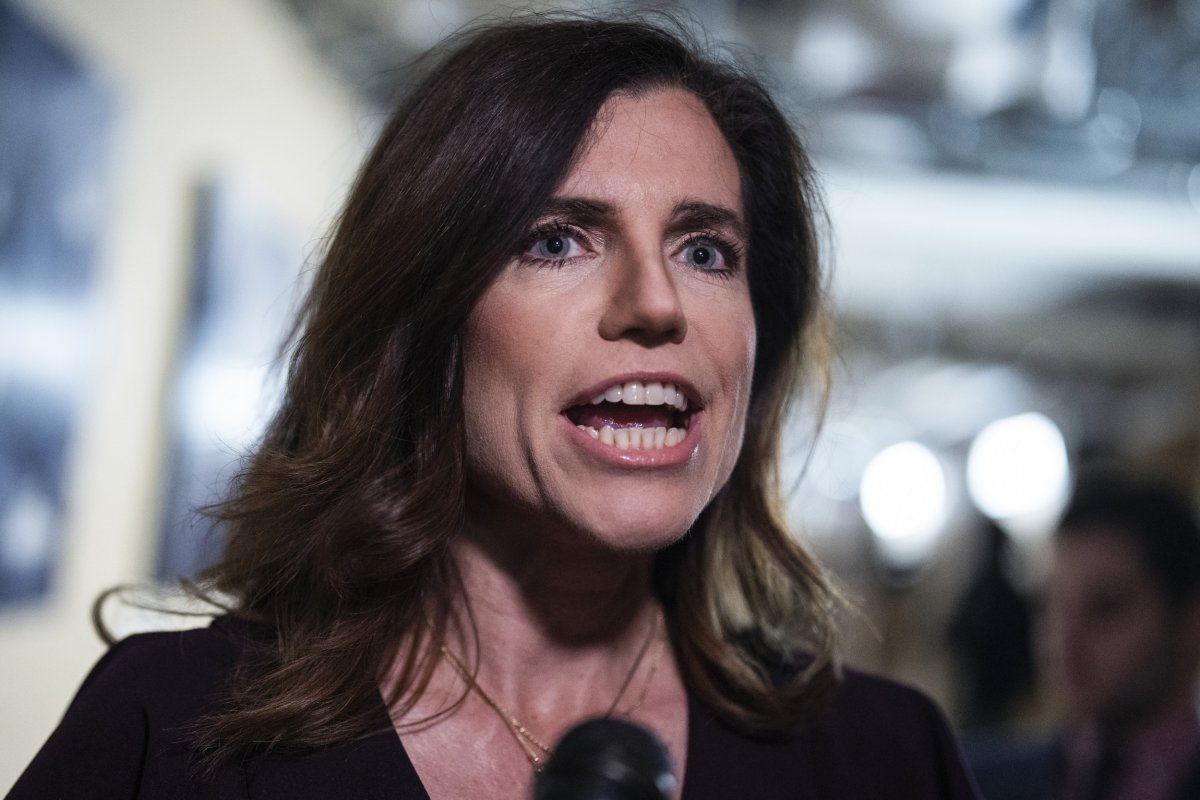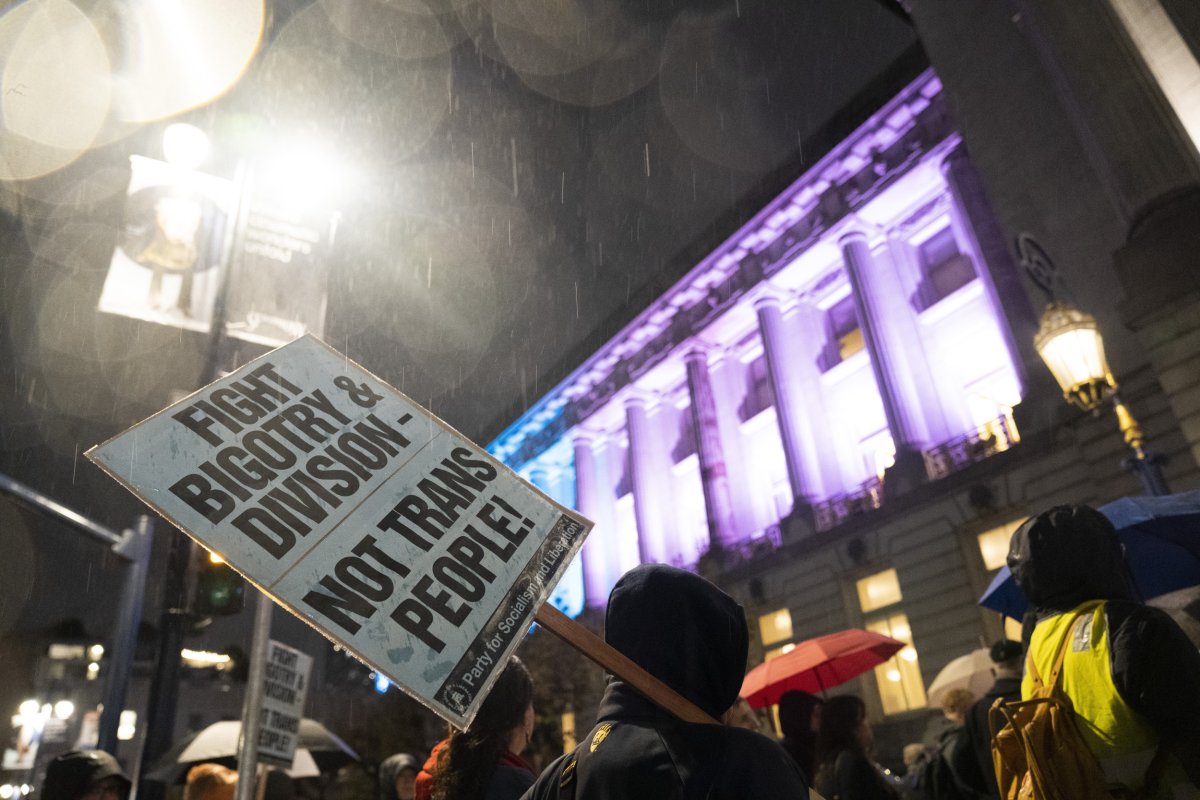
Republican Representative Nancy Mace of South Carolina is proposing a bill to ban trans people from all federal buildings across the country that detractors say will “not protect or promote anyone’s safety.”
The bill was proposed after Sarah McBride of Delaware this month became the first trans woman elected to the House of Representatives. If Mace’s bill passes, McBride will be barred from using women’s bathrooms in her place of work.
Since President Joe Biden took office in 2021, there was a significant rise in anti-trans legislation passed in states across the country. In 2021, the number of anti-trans bills (155) introduced nearly doubled from 2020, when there were 85. In 2023, 615 bills were introduced, followed by 652 this year, which marks the fourth consecutive year of record-breaking numbers of anti-trans bills being considered by legislatures in the U.S.
Bills have targeted transgender youth and adults in a wide range of categories, including limiting access to bathrooms. Thirteen states now have laws that ban trans people from using school bathrooms that align with their gender identity.
Arkansas, Idaho, Iowa, Kentucky, Oklahoma, South Carolina and Tennessee all have bans on trans people using bathrooms and facilities that align with their gender identity in K-12 schools, per the Movement Advancement Project (MAP).
Alabama, Louisiana, Mississippi and North Dakota have bathroom bans in schools and some government-owned buildings, while Florida and Utah have made it a criminal offense in some cases for people to use bathrooms that align with their gender identity in all government-owned buildings and spaces, including schools, colleges and other government offices.
Kansas, Montana and Nevada do not have bans but have laws defining sex and gender.

Tom Williams/CQ Roll Call via AP Images
In response to Mace’s bill, and her subsequent 262 posts on X, formerly Twitter, about trans people within 36 hours, as calculated by MeidasTouch Editor-in-Chief Ron Filipowski, Representative-elect McBride said: “I’m not here to fight about bathrooms. I’m here to fight for Delawareans and bring down costs facing families…this effort to distract from real issues facing this country hasn’t distracted me over the last several days, as I’ve remained hard at work preparing to represent the greatest state in the union come January.”
Mace, a sexual assault survivor, has said that her campaign against trans people in bathrooms and locker rooms comes from her desire to keep people safe.
Newsweek has contacted Mace via email for comment.
House Speaker Mike Johnson has said he will back a ban on trans people in Capitol Hill bathrooms.
Women’s safety was also the reason given by Julia Friedland, deputy press secretary for Florida Governor Ron DeSantis, about why that state has one of the strictest bathroom bans in the country.
“A woman should not be in a locker room having to worry about someone from the opposite sex being in their locker room,” she told Newsweek. “And it’s happened with athletics with our girl athletes and women athletes.
“Also, with some of these other things, whether it’s a prison situation, whether it’s just these restrooms, we want to make sure that our girls and our women are protected. And so, this bill does that and makes sure that they’re not going to be exposed to situations that are not in their best interest.”
A 2018 UCLA study found that there is no link between inclusive trans policies and bathroom safety.
MAP Director of Policy Research Logan Casey spoke to Newsweek about the effectiveness of bathroom bans as safety measures, saying: “Concern around safety in bathrooms is a shared and understandable value.
“But, bathroom bans do not protect or promote anyone’s safety, and in fact only increase the risk of harm to transgender people as well as cisgender people who may be perceived as not feminine or masculine ‘enough,’ as can be seen from numerous reports of cisgender women being harassed in women’s bathrooms due to someone incorrectly thinking they are transgender…indeed the type of incidents that proponents of bathroom bans are concerned about [harassment, abuse, etc.] are already illegal.”
Mace filmed herself on November 19 putting a sign that says “biological” over a women’s bathroom in Congress, captioning the video: “I never thought we would need a sign for this, but women’s restrooms are for BIOLOGICAL women. Not men.”
The Royal Society for Biology has said that referring to gender as determined at birth and immutable is transphobic.

Minh Connors/Associated Press
Trans people in America are facing a rise in violent attacks. The Human Rights Campaign (HRC) reported that at least 36 gender non-conforming people were killed in the past year, with Black trans women representing half of the victims.
Additionally, hate crimes against trans people rose by 32.9 percent, according to the FBI‘s Hate Crime Statistics for 2022 released in 2023, with 469 incidents motivated by gender identity bias reported.
Bathroom bills have been controversial for years, with the 2016 Republican bill banning trans people from using the bathroom that assigns with their gender identity in North Carolina resulting in backlash. The bill was repealed in 2017.
The same backlash did not reach the 13 states that now have bans, which were implemented in 2021 or later. Casey explained the lack of backlash to Newsweek, saying: “The last few years have brought unprecedented, recording-breaking years for anti-LGBTQ legislation across the country.
“In both 2023 and 2024 there were 500+ anti-LGBTQ bills, and this deluge of attacks across virtually every aspect of our lives may contribute to individual attacks (like bathroom bans) receiving less attention.”
HRC National Press Secretary Brandon Wolf told Newsweek: “While it’s true that North Carolina paid a uniquely steep price for its hateful anti-trans law, other states have seen conferences canceled, events rescheduled, and companies speak out against laws that make us all less safe.
“With that said, the backlash of 2016 was driven by powerful leaders in the business community, and their voices are sorely needed in the current iteration of this fight.”
The White House has expressed support for trans people, releasing a statement on Wednesday for Trans Day of Remembrance that says: “There should be no place for hate in America – and yet too many transgender Americans, including young people, are cruelly targeted and face harassment simply for being themselves.”
Do you have a story we should be covering? Do you have any questions about this article? Contact LiveNews@newsweek.com
